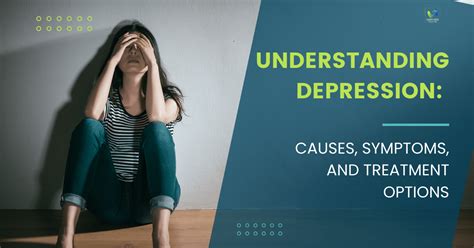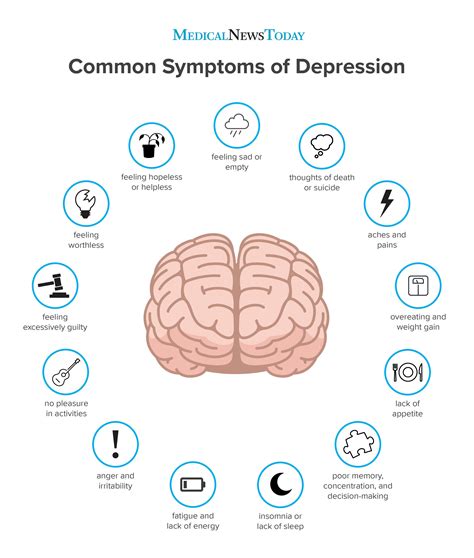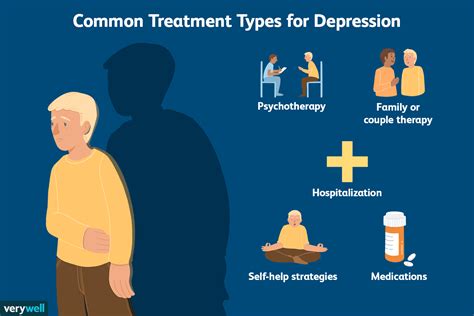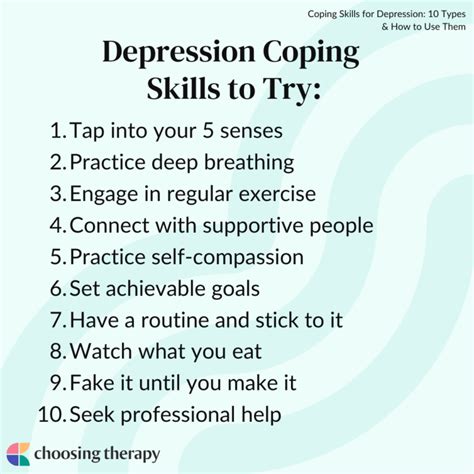Intro
Identify depression signs with our expert guide, covering mental health, mood disorders, and emotional wellness, to recognize symptoms and seek help for anxiety, sadness, and loss of interest.
Depression is a complex and multifaceted mental health disorder that affects millions of people worldwide. It is a condition characterized by persistent feelings of sadness, hopelessness, and a lack of interest in activities that once brought pleasure. Despite its prevalence, depression remains a widely misunderstood condition, and many people struggle to recognize its symptoms in themselves or others. In this article, we will explore the signs and symptoms of depression, its causes and risk factors, and the various treatment options available.
Depression can affect anyone, regardless of their age, background, or circumstances. It is a condition that can strike at any time, and its symptoms can be subtle or overt. Some people may experience depression as a result of a traumatic event, such as the loss of a loved one, while others may struggle with it due to a combination of genetic and environmental factors. Whatever the cause, depression is a treatable condition, and seeking help is the first step towards recovery.
The importance of recognizing the signs and symptoms of depression cannot be overstated. Early detection and treatment can make a significant difference in the outcome of the condition, and it is crucial to be aware of the warning signs to ensure prompt intervention. In this article, we will delve into the world of depression, exploring its complexities, and providing valuable insights into its diagnosis, treatment, and management.
Understanding Depression

Causes and Risk Factors
The causes and risk factors of depression are complex and multifaceted. Some of the most common causes of depression include genetic predisposition, brain chemistry, and life events. People with a family history of depression are more likely to experience the condition, and certain medications or medical conditions can also contribute to its development. Additionally, stressful life events, such as the loss of a loved one, a divorce, or a major illness, can trigger depression in some individuals.Signs and Symptoms of Depression

5 Common Signs of Depression
Here are five common signs of depression to look out for: * Persistent feelings of sadness or hopelessness * Loss of interest in activities that once brought pleasure * Changes in appetite or sleep patterns * Fatigue or low energy * Difficulty concentrating or making decisionsTreatment Options for Depression

Therapy and Counseling
Therapy and counseling are essential components of depression treatment. A mental health professional can help individuals identify the underlying causes of their depression, develop coping strategies, and improve their overall mental health. Therapy can take many forms, including individual, group, or family therapy, and may involve various techniques such as CBT, IPT, or psychodynamic therapy.Coping with Depression

Self-Care Strategies
Here are some self-care strategies that can help individuals cope with depression: * Engage in regular exercise, such as walking or yoga * Practice mindfulness or meditation to reduce stress and anxiety * Connect with friends and family to build social support * Establish a daily routine to provide structure and stability * Prioritize sleep and nutrition to support overall healthConclusion and Next Steps

We invite you to share your thoughts and experiences with depression in the comments section below. Your input can help others feel less alone and more empowered to seek help. Additionally, if you found this article helpful, please consider sharing it with others who may benefit from its insights and information.
What are the common symptoms of depression?
+The common symptoms of depression include persistent feelings of sadness, hopelessness, and a lack of interest in activities. Other symptoms may include changes in appetite or sleep patterns, fatigue, difficulty concentrating, and physical pain or discomfort.
How is depression diagnosed?
+Depression is diagnosed through a combination of physical and psychological evaluations. A mental health professional will typically conduct a thorough interview, physical examination, and may use standardized assessment tools to determine the presence and severity of depressive symptoms.
What are the treatment options for depression?
+The treatment options for depression include medication, therapy, or a combination of both. Medications such as antidepressants can help alleviate symptoms of depression, while therapies like cognitive-behavioral therapy (CBT) or interpersonal therapy (IPT) can help individuals develop coping strategies and address underlying issues.
